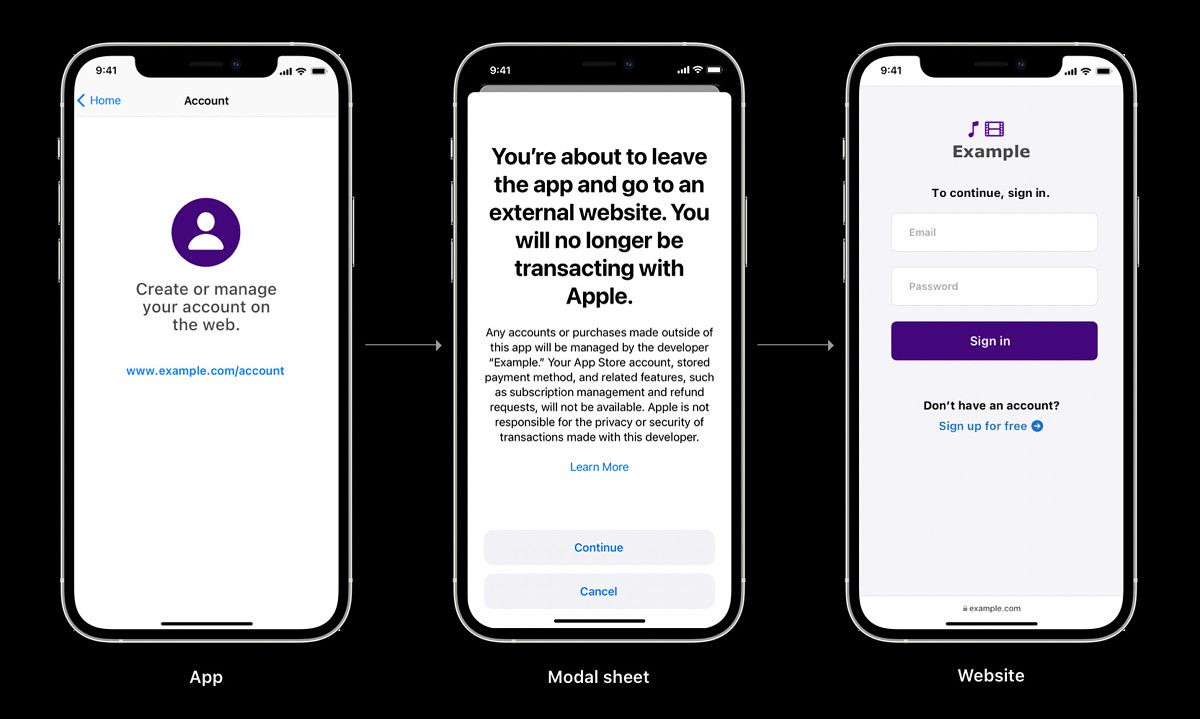Apple is notoriously known for its strict (and sometimes arguably unfair) App Store rules. The Cupertino tech giant has even been taken to court on several occasions for lawsuits revolving around these practices. One of its popular anti-competition guidelines denies iOS app developers from linking to their own payment methods. This forces devs to use Apple's in-app purchases (IAP) system and pay the tech overlord a 15-30% commission fee. Alternatively, they could refrain from implementing any IAPs in their apps. Users would then have to figure out how to subscribe to their service through the website. That's because even mentioning -- without linking to -- external websites for payment purposes violates Apple's guidelines. Fortunately for developers and users, Apple is now allowing "Reader" apps to link to their own payment methods in iOS apps.
Last year, Apple promised that it would eventually allow "Reader" apps to link to their websites -- where users can directly subscribe to a service. What are "Reader" apps? The company defines them as apps that provide one or more of the following digital content types — magazines, newspapers, books, audio, music, or video — as the primary functionality of the app. So apps like Spotify and Netflix will now be able to link to their own websites in their respective iOS apps. This makes it easier for users to subscribe to a service without needing to dig online and search for its webpage.
By default, developers can't take advantage of this new change. Those who believe their app is an eligible "Reader" one will have to fill a form and submit a request. Apple will then review it and make a decision accordingly. The company states that an eligible "Reader" app must:
- As the primary functionality of your app, provide one or more of the following digital content types; magazines, newspapers, books, audio, music, or video.
- Allow people to sign in to an account.
- Allow people to access content or services previously purchased outside of the app when signed in, such as on your website.
- Not offer in-app purchases on iOS or iPadOS while using the External Link Account Entitlement
- Not facilitate real-time, person-to-person services (e.g., providing tutoring services, medical consultations, real estate tours, or fitness training).
The Cupertino tech giant mentions that apps that offer these digital goods but not as part of their primary functionality will not be eligible for the External Link Account Entitlement. This move nonetheless is a promising one that could potentially expand to cover more app types in the future.
Would you rather use the IAP system of Apple or third-party developers? Let us know in the comments section below.
Source: Apple
Via: The Verge

